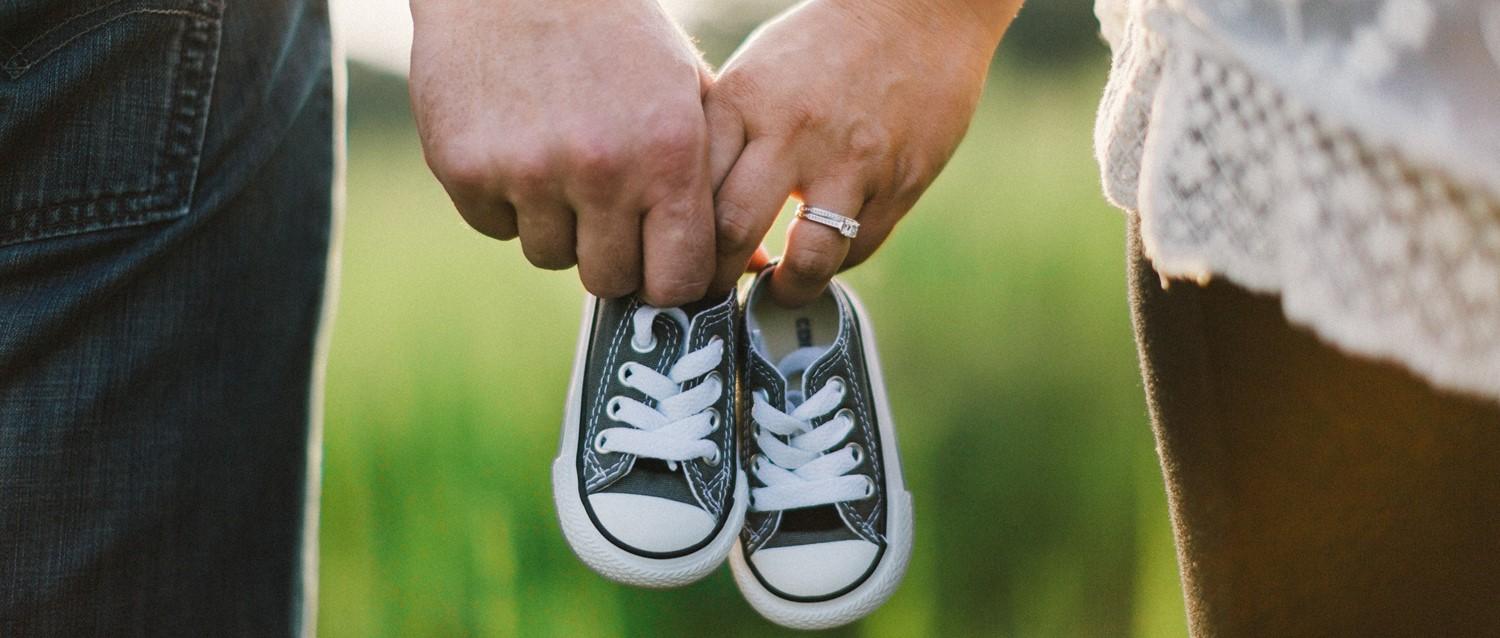
What happens after finding out you're pregnant?
Peer reviewed by Dr Sarah Jarvis MBE, FRCGPLast updated by Danny ChadburnLast updated 28 Sept 2017
Meets Patient’s editorial guidelines
- DownloadDownload
- Share
- Language
- Discussion
You’ve taken the pregnancy test and got the positive result you were hoping for. So what next?
In this article:
Dr Clare Morrison, GP for MedExpress, says, 'You’re excited but you might also be feeling daunted and baffled by the uncertainties and challenges that lie ahead. Don’t worry - just take things one step at a time.'
Here’s our quick guide to what to expect over the next nine months, and what you can do for a healthy, happy pregnancy.
Continue reading below
As soon as you know you are pregnant
If you haven't already, quit alcohol and smoking and check any medications to ensure they’re safe in pregnancy. If your pregnancy is planned then hopefully you will have had discussions around this already. You should also start taking folic acid and vitamin D supplements if you aren't already.
Avoid raw or undercooked meat, eggs and shellfish, and excessive caffeine (not more than 200 mg a day caffeine from all sources including coffee, tea, cola and chocolate), as well as unpasteurised milk products.
See your GP. Milli Hill, author of The Positive Birth Book, says, 'You will then be contacted for an initial booking with the midwife which takes place eight to 12 weeks into your pregnancy.' You should also be asked to choose a hospital for delivery. You will see your midwife or doctor at 16 and 25 weeks, then more frequently after that.
Prepare to feel sick. Morning sickness affects around 70% of pregnant women. "Eat small regular meals to help relieve the nausea," says Dr Morrison.
Weeks 8-12
You’ll have a range of hospital appointments for blood tests to check for various conditions, and an ultrasound scan to confirm your dates. You will also be offered a Down's syndrome screen, which may happen closer to week 14 and is something you can opt out of should you wish.
Sign up for antenatal classes. The friends you make at National Childbirth Trust (NCT) classes can help you through the first few months of being a new mum.
Your breasts may become more tender and you may start to feel more emotional, all thanks to pregnancy hormones.
If you’re on certain benefits, you could claim free milk, fruit and vegetables on the NHS Healthy Start scheme from week 10.
Continue reading below
Week 12
Break the good news. Midwife Katie Hilton says, 'The rationale behind waiting until the magical 12-week mark is because the risk of miscarriage reduces significantly after that.'
Tell your boss you’re pregnant. Jennifer Liston-Smith, head of coaching at My Family Care, says, 'In the UK, employees should tell their employer no later than 15 weeks prior to the due date that they plan to take leave.' However, most women do so between 12 and 20 weeks.
Plan your finances. Create a baby budget to cover new expenses such as nappies and childcare costs.
You could also plan a babymoon. Hill says, 'Celebrate your final time together as a couple. The best time to go is in the second trimester (13-27 weeks) when you’ll be 'blooming' rather than 'blooming knackered' in the first trimester or 'blooming enormous' in the third.'
Weeks 18-21
Have an 'anomaly scan'. This will look closely at the baby to see if there are any abnormalities or problems with growth. You can also find out the baby’s sex if you want to.
Pregnancy hormones can cause sore and bleeding gums but you can claim free dental care if you are pregnant. See your dentist if you need to.
Continue reading below
Week 24
Blogger Amanda Fulton, aka Ginger Mum, says now is the time to start stocking up on baby items, but 'don’t get caught in the trap of buying every 'must-have' - it’s a money pit!' she says. Her essentials are a steam steriliser, a baby monitor and digital ear thermometer, but give the cribs and nappy stackers a miss.
Week 26
If you don’t qualify for Statutory Maternity Pay, you could be eligible for Maternity Allowance from 26 weeks.
Week 29
Go on maternity leave. The earliest you can start your leave is 11 weeks before your baby is due, although you can work right up to your due date if you choose.
Use this time to bulk bake and freeze easy meals. Hilton says, 'You’ll lack the time and energy after your baby comes. Go for meals such as Bolognese, lasagne, sausage casserole, and curry.'
Week 37
Enjoy the peace and quiet. 'Don’t try to cram too much into your schedule,' says Hilton. 'Watch a movie and have a lie-in - they’ll soon be a thing of the past!'
Patient picks for General information

Pregnancy
When should you announce a pregnancy?
It's one thing to discover you are pregnant. It's quite another to tell the world. While some women may want to shout the news from the rooftops, others feel more cautious. So, when is the best time to announce your pregnancy?
by Gillian Harvey

Pregnancy
What are all the different types of abortion?
Abortion is legal in the UK up to 24 weeks in line with the Abortion Act 1967. In limited circumstances, a person can legally have an abortion after 24 weeks, provided they meet the criteria - for example, there must be a risk to the parent's life or a high risk of the baby not being able to survive once born.
by Emily Jane Bashforth
Continue reading below
Article history
The information on this page is peer reviewed by qualified clinicians.
28 Sept 2017 | Latest version

Ask, share, connect.
Browse discussions, ask questions, and share experiences across hundreds of health topics.

Feeling unwell?
Assess your symptoms online for free
Sign up to the Patient newsletter
Your weekly dose of clear, trustworthy health advice - written to help you feel informed, confident and in control.
By subscribing you accept our Privacy Policy. You can unsubscribe at any time. We never sell your data.